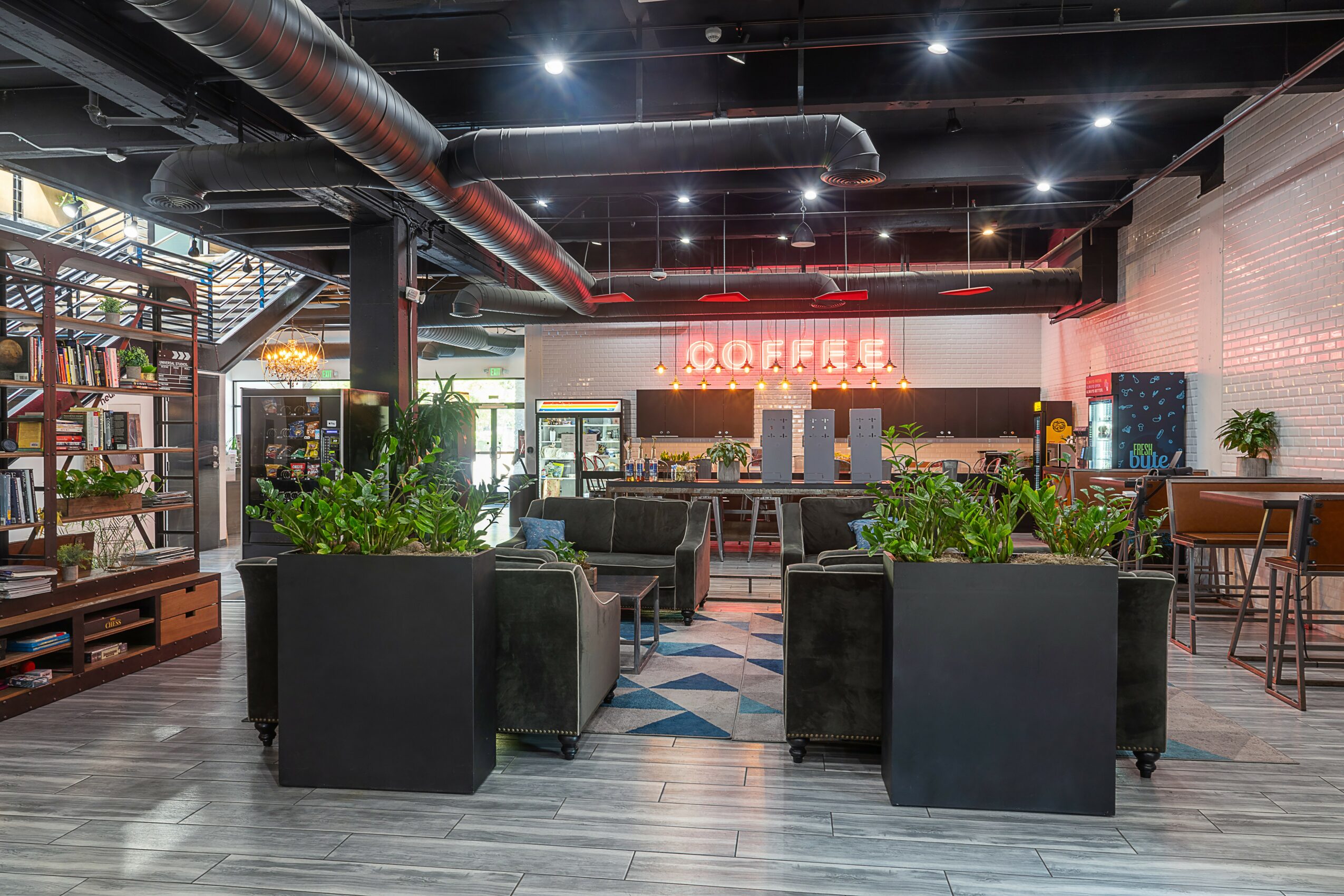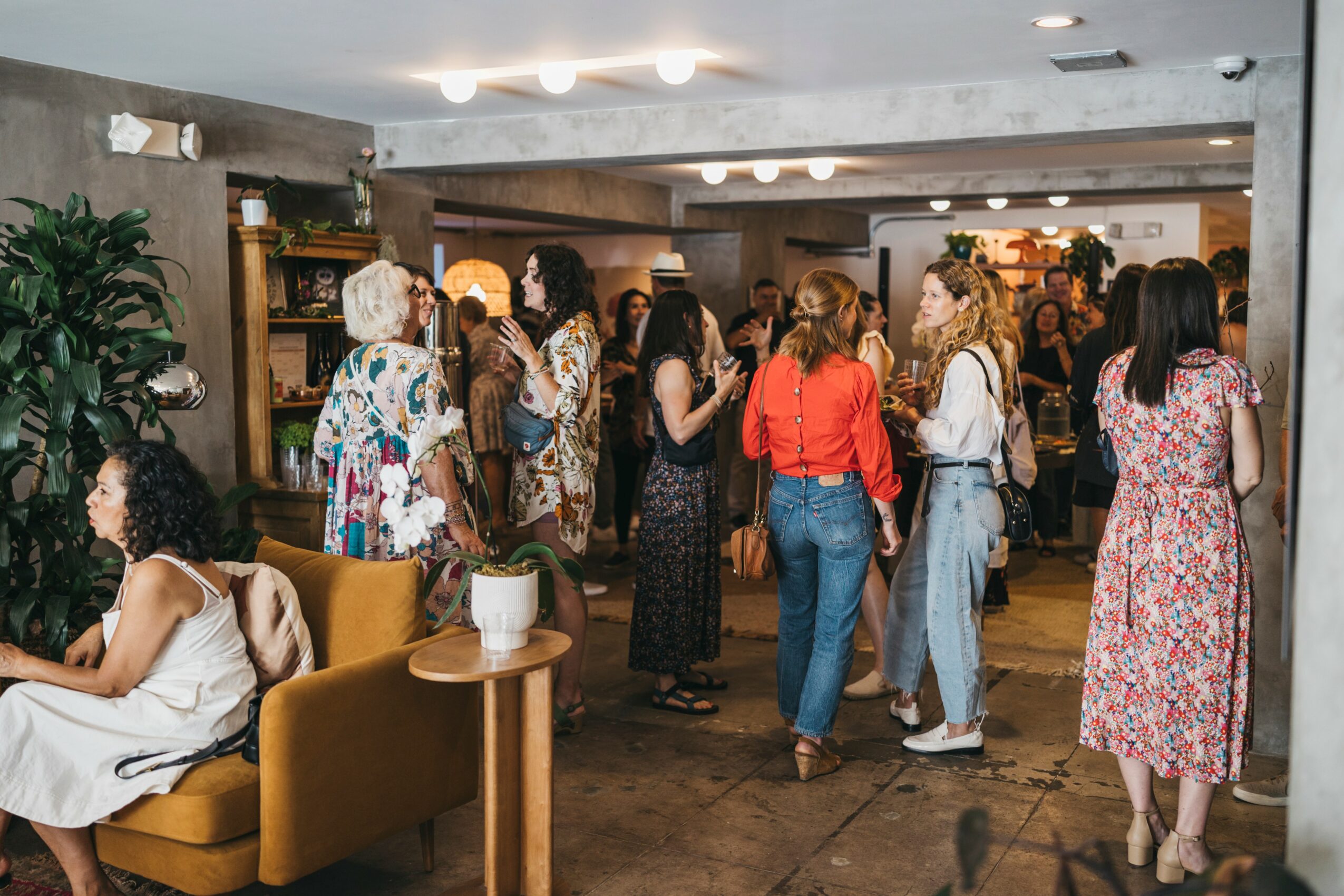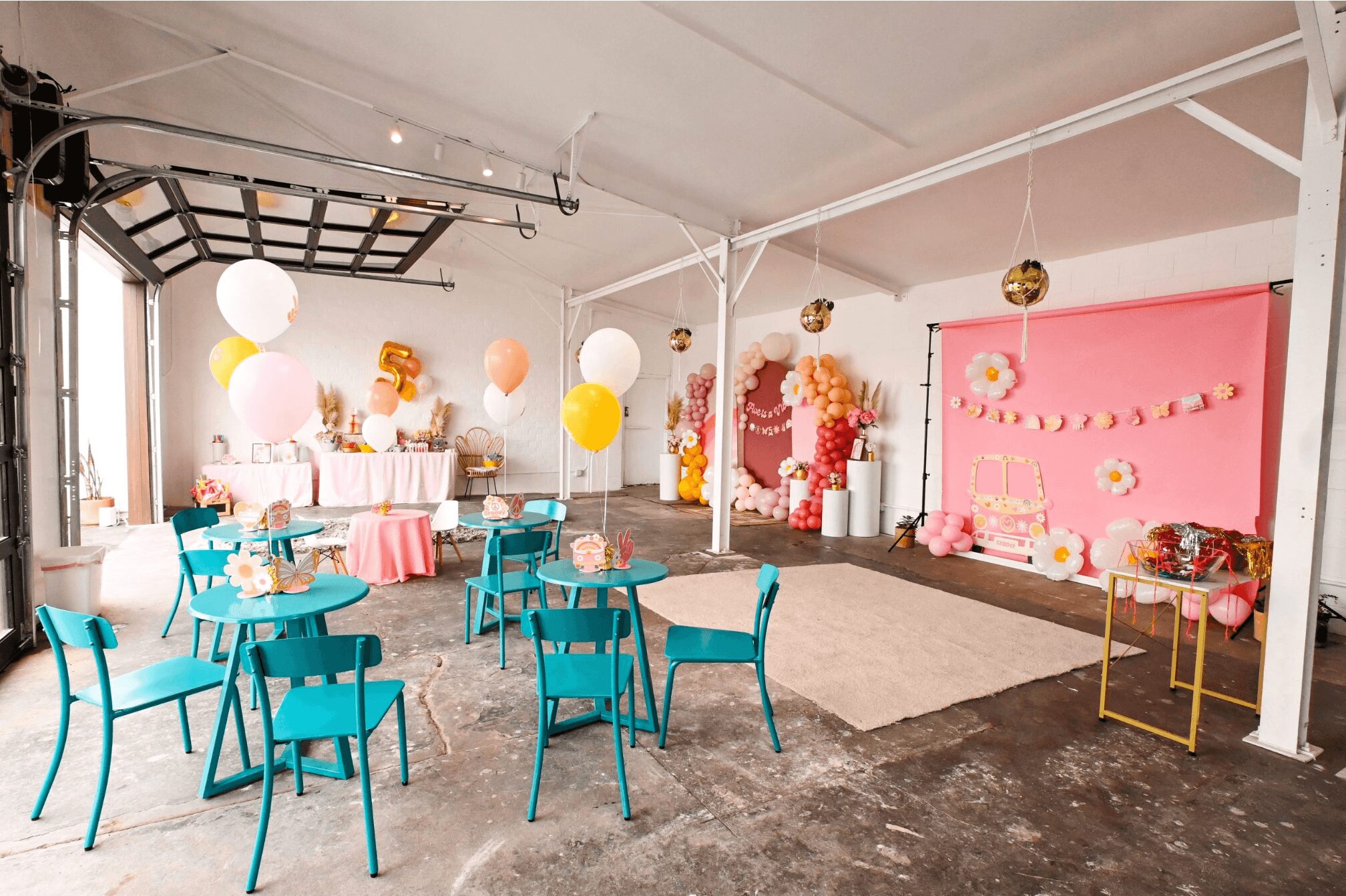Today we’d like to introduce you to Stephen Hargett.
stephen, we appreciate you taking the time to share your story with us today. Where does your story begin?
I wasn’t supposed to be here. Catholic school single parent kid from South Central LA —you learn early that if you want peace, you better figure out how to make it yourself. Nobody’s holding doors open, so you find angles, create your own way in.
That scrappy mindset somehow got me into rooms I had no business being in—Apple, Tesla, WeWork. These shiny places everyone dreams about. But behind all that glass and those premium coffee bars, I kept seeing the same crack in the foundation. Beautiful buildings that weren’t actually holding people. Operations scattered everywhere, environments that looked impressive but didn’t create any real belonging. People burning themselves out trying to fit into spaces that just weren’t designed for them as humans.
Then my body forced me to stop.
I ended up in a hospital bed—couldn’t speak, mind totally clouded, everything frail. Lying there, I had my reckoning: “How the hell did I get here?” I’d been so busy building everyone else’s version of work that I’d completely lost my own space in the process. That’s when everything shifted for me. The question wasn’t “How do we design a better room?” anymore. It became “How do we design belonging?”
The real breakthrough came months later. I was moonlighting as a courier—just trying to keep the lights on—when I watched this transporter wheel out a cardboard box marked “human remains.” No story attached, no legacy, just a box headed to the mortuary.
I asked where “they” were going. Guy corrected me: “The body.”
That hit different. We all end up in a box anyway, right? So why was I already living in one? Living in these smaller boxes of fear, always asking permission, worried about pedigree. I thought—if the alternative to pursuing my dream is still ending up in a box, I’m choosing the dream.
That moment? That’s what wrkspace is built on.
We weren’t supposed to happen. Not where we’re from, not how we started. No insiders, no soft landings. Just misfits who showed up anyway. But we’ve got two core truths driving us: When people believe in us, we carry it like a duty. And we stay curious because every constraint is just the future asking to be designed.
Today, wrkspace is basically the API for the built environment—think Plaid meets Zapier but for physical space. One layer that connects people, places, and vendors so the real world works like the digital one. We’ve lived in the mess, we’ve cleaned it up. We can turn vacant spaces into thriving communities in under 30 days because a unified system cuts hours of friction down to minutes.
But this isn’t just about software or real estate. It’s infrastructure for how the world works next. Empty buildings become opportunities. Scattered tools become one flow. Lonely work becomes community.
Twenty years inside these tech machines taught me how environment shapes identity. My time flat on my back in that hospital? That taught me about presence, about ritual, about compassion. All that personal work sits under this company like rebar.
We measure success in dollars, sure, but also in belonging. In access created. Isolation reduced. Communities stitched back together. Because here’s what I’ve learned—the ordinary moments are where life actually happens. If we can make the places where people work feel human, everything else just shows up naturally. Productivity, retention, trust—it all follows when people feel like they belong.
I’m sure it wasn’t obstacle-free, but would you say the journey has been fairly smooth so far?
Smooth? Naw, Nope, Not even close.
There were days I wasn’t sure if I’d make it—not just as a founder, but as a man, a father, a human trying to keep it together. Ask me about April 2, 2024, and I’ll tell you exactly what that felt like.
I’ve been broke more times than I can count. Been fired. Been on medical leave wondering if my body was ever going to work right again. I’ve stared at bank accounts sitting at zero while still trying to convince myself to keep going.
I was delivering packages at night just to keep the lights on. I’ve had moments sitting on a corner in South LA, engine off, just trying to figure out how to make one more move. That kind of silence hits different when you’ve got kids counting on you.
And my kids—they’re everything. They’re the reason I keep showing up. One of them has had surgery. One asks me questions I don’t always have the heart to answer, and honestly, it’s a blessing they’re even here to ask. When they watch me work, they’re seeing resilience in real time. They don’t see “founder.” They see their dad refusing to quit.
So no, it’s never been smooth. But maybe that’s the point.
Every rough patch, every no, every “you’re not supposed to be here” moment—that’s what gave me the clarity to build something real. Out of this idea that you can create peace even when your whole world feels chaotic.
It’s not a clean story, but it’s mine. And I think that’s what makes it work—it’s proof that even when everything falls apart, you can still build something that holds people together.
We’ve been impressed with wrkspace, but for folks who might not be as familiar, what can you share with them about what you do and what sets you apart from others?
So here’s what we’re actually building at wrkspace: We’re basically the operating system for how physical spaces work. We’re creating the connective tissue that makes real-world spaces function as smoothly as your apps do—one layer that connects people, places, and vendors. No more chaos trying to manage workspace operations.
What we’ve done is create this single source of truth for everything—booking, access control, vendors, compliance, payments—it all lives in one place. Our AI workflows are pretty wild. An operator can literally type “20 people next Thursday, need whiteboards and catering” and we handle everything. No more juggling 12 different logins or drowning in 40 email threads just to make a space work.
Now, let me be clear—we’re not another “cool coworking” startup. We’re not a real estate play wearing a software costume. We’re infrastructure builders who’ve actually lived in this operational mess. I’ve manually operated spaces myself, filled vacant buildings in under 30 days, learned exactly where those hours of coordination can compress into minutes of automation. We’ve been in it.
But here’s what really makes us different: We’re built by outsiders who weren’t supposed to be here. No soft landings, no insider connections—just misfits who get what it’s like to need space when there isn’t any. And that’s not just our origin story—it’s our operational advantage. We build for the people who usually get left out because we’ve been them.
Our whole culture runs on two principles: Purpose over permission—we choose the unknown blessing over the known hell. And people first, always—we build software that gives people back their time, attention, and dignity.
Our bar? Practically impossible. If it looks easy, it’s not ours.
We bring in people who’ve walked dark roads with nothing but vision and a lamppost. People who know what it’s like to build when nobody’s clapping—and build anyway. That’s our team.
What really matters to me is that we measure success in belonging. How much access did we create? How much isolation did we reduce? How many communities did we stitch back together? We’ve proven that clarity and care aren’t just feel-good metrics—they’re operational advantages. When you make spaces that actually hold people, everything else—productivity, retention, trust—it all just follows.
Twenty years inside these tech machines taught me how environment shapes identity. All those hard lessons about presence and human connection? That sits under this company like rebar. Because the ordinary moments—that’s where life actually happens, and we’re making those moments work better.
For operators and owners, we’re delivering unified workspace management without the friction. AI coordination that actually handles complexity. Clear visibility into what’s happening—occupancy, revenue, operations. A system that turns empty buildings into opportunity.
For the people actually using these spaces? We’re creating environments that feel like belonging. Places where work doesn’t feel like isolation. Real communities stitched together through thoughtful design.
Here’s the bottom line: We’re not asking permission to reimagine how the built world operates. We’re building the infrastructure for how the world works next—making physical spaces as fluid, connected, and human as they should’ve been all along.
Built by people who weren’t supposed to be here, for all the people who need space to exist, create, and belong.
Look, we’re not trying to end up in the Hudson—we can’t swim like that. But we’re absolutely going to make the built world feel human.RetryClaude can make mistakes. Please double-check responses.
What matters most to you? Why?
What matters most to me? Doing the right thing. Not the easy thing, not whatever makes you look good—the right thing.
If we all just chose that, the world would already be better. Because when people do right together, it creates this ripple effect. Changes the whole energy of a room. Heals things money never could.
But if I’m being real—beyond all that—what matters most is time.
Not clock time. I mean the kind you actually feel. Those seconds that turn into memories. When you’re fully present with your kids, your people, your purpose, and you just want to freeze everything right there. But you can’t. Time keeps moving whether you want it to or not.
So I try to make whatever time I have actually mean something. I spend it doing what’s right, building things that last, surrounding myself with people who make me feel alive.
Everything else fades away eventually. But how we spend our time? That tells the truth about who we really are.
Because remember—we all end up in that box. So while we’re here, while we’ve got this time, we might as well spend it outside the smaller boxes. The ones made of fear, permission, playing it safe. If the ending’s the same either way, I’m choosing to live.
Contact Info:
- Website: https://wrkspace.ap
- Instagram: https://www.linkedin.com/in/shargett/
- LinkedIn: https://www.linkedin.com/company/wrkspaceapp




Image Credits
The Pod Photography – Club Joyful – Venice
CTRL Collective – Old Town Pasadena
Wuum Los Angeles – Santa Monica
Angel City Business Lab – West Adams














